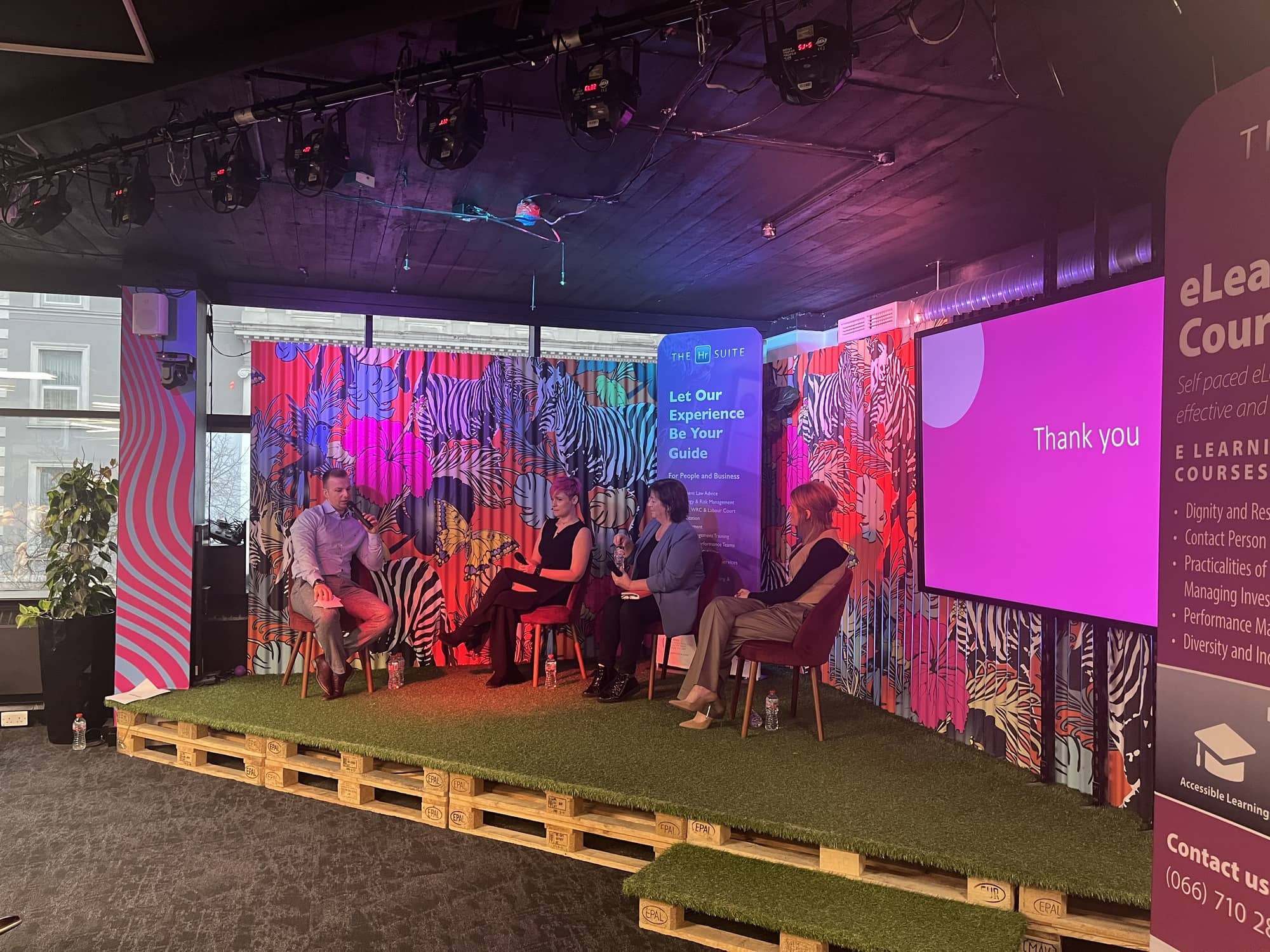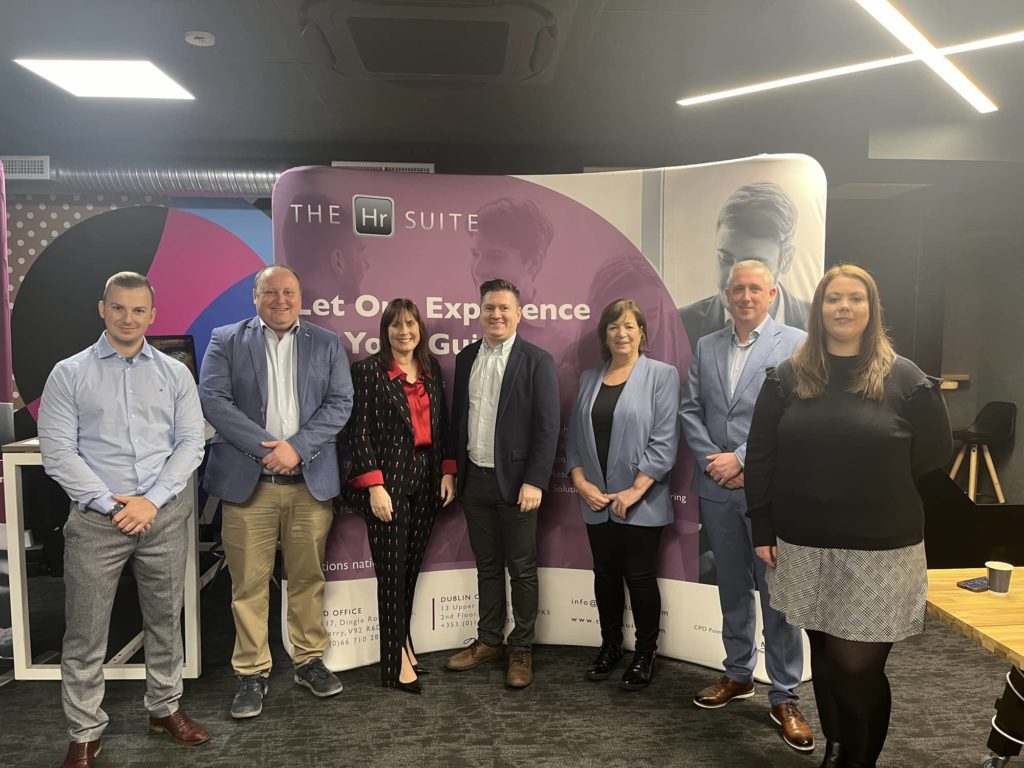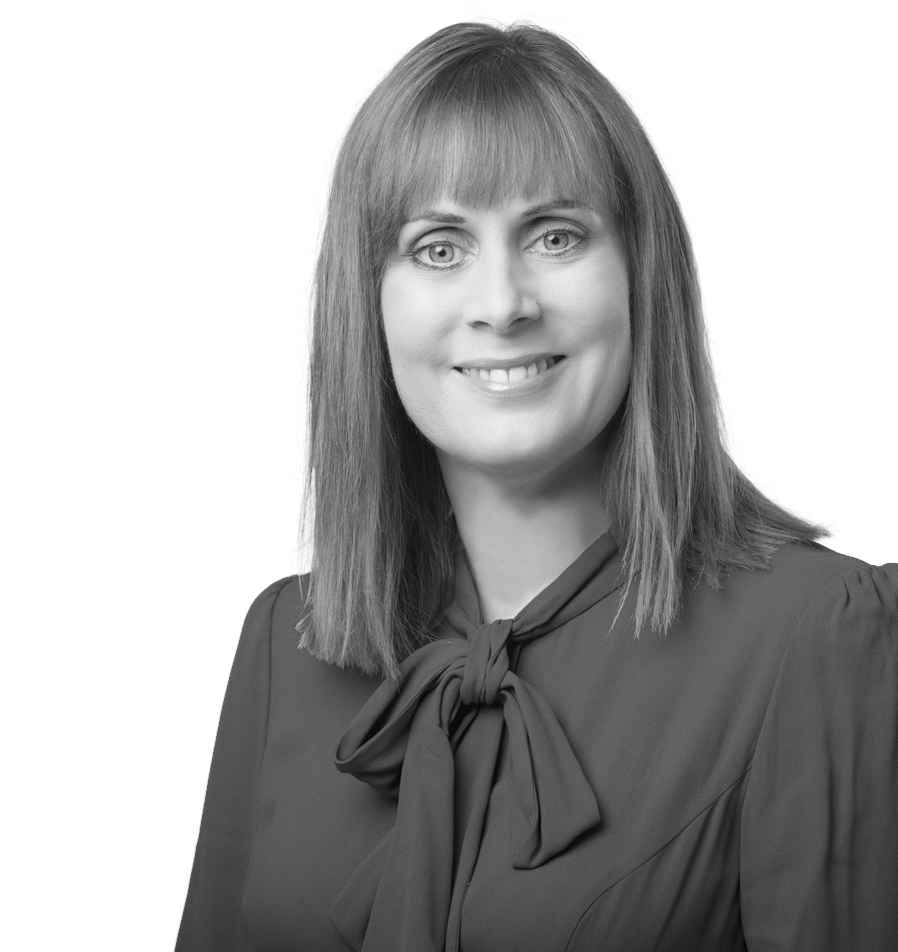We were delighted to host our first Future of Work event at our Cork office recently. We had a full house in attendance, and a great line up of expert panellists:
Paul Reilly, People Director, Paddy Power
Claire Kelly, Head of Growth, Sigmar Recruitment
David Fox, Managing Director, Sodexo
Stephen Doyle, Director of Workplace Services, EY
Niah McGill, ED&I Lead, IDA
Bernie O’Connor, Inclusion Specialist, ESB
The key takeaway from the day was the critical importance of being intentional.
As we navigate the future of work, there are several key themes that emerged from the conversations – from embracing AI to fostering a culture of learning, promoting diversity, equity, and inclusion (DE&I), and reimagining the concept of the office space. In this blog post, I will dive into these insights on shaping the future of work.
Embracing AI with Intention:
The integration of artificial intelligence (AI) into organisational strategies was a recurrent theme. Organisations that fully embrace AI are reaping the rewards in terms of data analytics, productivity enhancements, and quality assurance. The key message is clear here – make AI a deliberate part of your strategy or risk being left behind in the ever-evolving business landscape.
Employee-Led Initiatives and Flexibility:
A significant aspect of the future of work is ensuring that initiatives, particularly those related to the return to the office and the design of future workspaces, are employee-led. If we are not asking the right questions and listening to employees, we’re missing the point. The future office, flexibility, and individual preferences should be at the forefront of organisational planning. It’s not about having all the answers, but about engaging experts and employees in crafting solutions. You’re not going to get it right all the time, but be brave enough to say I don’t know and if a mistake is made, share the learnings.
I personally love the concept of Clive Woodward’s TCUP moments, which emphasises thinking correctly under pressure and sharing learnings from mistakes. At the HR Suite, we regularly share our TCUP moments as a team so that we can all learn from the experience.
Acknowledging that perfection is unattainable, organisations should create an environment where it’s okay not to have all the answers, but a commitment to learning and improvement is paramount.
Cascading Culture and Values:
Several panellists highlighted the importance of regularly reassessing organisational culture and values. The key is to communicate these values, ensuring they are lived and breathed throughout the organisation. This reassessment is crucial for setting a new path forward and keeping the company up to speed with the latest trends and changes in the industry and society.
Learning Transfer and Microlearning:
While e-learning courses and virtual training are prevalent, ensuring the transfer of knowledge is a vital aspect of effective training. The decreasing attention span calls for microlearning and personalised follow-ups to maximise the value from training investments.
DE&I and the Power of One:
The commitment to diversity, equity, and inclusion (DE&I) is a collective responsibility. The call to action is to ensure that talent is universally shared and opportunities are distributed equally. Each individual has the capacity to be a change-maker and contribute to a more inclusive and positive workplace.
Now more than ever it is crucial for organisations to upskill and educate employees to promote and drive a culture of inclusiveness. Building inclusive workplaces will ensure all employees feel welcome coming to work, but will equally help with employee retention and attraction.
We need to take the preventative approach and give employees the skills to have the right conversations and support employees from different backgrounds and cultures, employees who chose different sexual identities, neurodivergent employees and equally employees going through menopause, or those who have disability. It’s like the saying: people will forget what you said, but they won’t forget how you made them feel.
Conclusion:
In the journey toward the future of work, intentionality stands out as the guiding principle. Organisations are encouraged to embrace innovation, foster a culture of learning, and prioritise the well-being and inclusion of their employees. The future of work is not about having all the answers but about navigating the complexities with a willingness to learn, adapt, and collaborate with experts. By doing so, organisations can truly be the change they wish to see in the evolving world of work.








